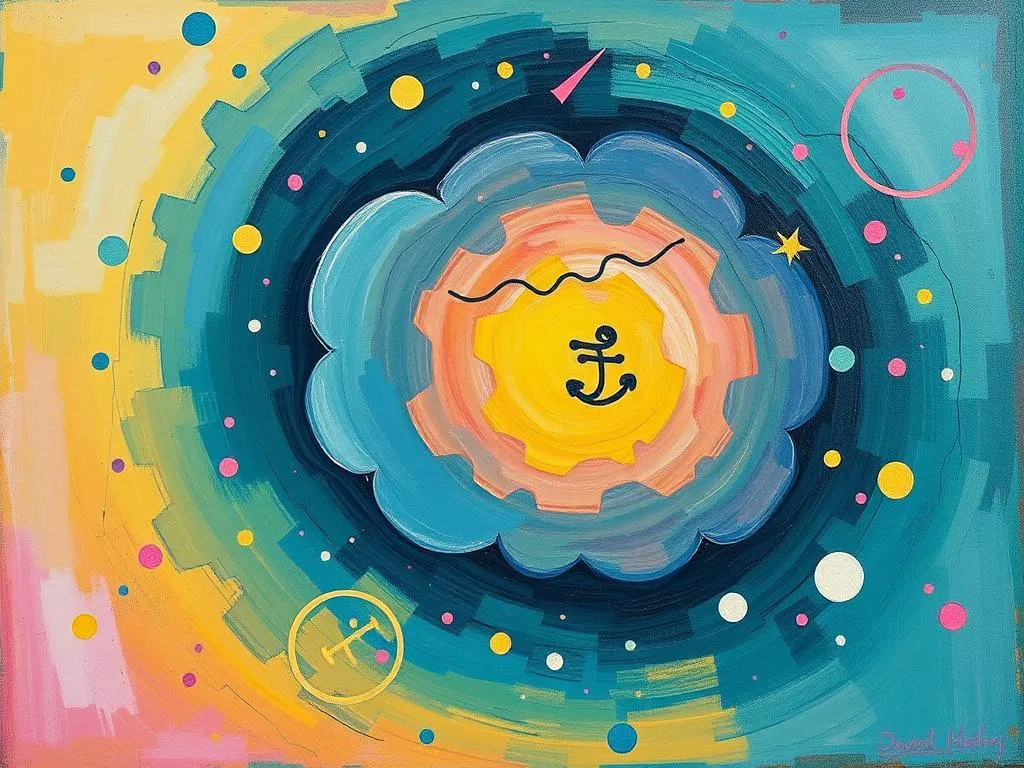
Introduction
Dreams serve as a fascinating window into our subconscious, offering a rich tapestry of symbols and emotions that can illuminate our waking lives. Among the myriad of dream themes, the symbol of pain often evokes a sense of unease and intrigue. People frequently find themselves grappling with the significance of such dreams, questioning their origins and the messages they may convey. Understanding these dreams not only helps us decode our inner thoughts but also encourages us to confront issues that may be lurking beneath the surface. This article delves into the hidden meanings behind dreams that involve pain, exploring their symbolism, variations, and how they can connect to our real-life experiences.
Symbolism and Meaning
The symbol of pain in dreams can manifest in various forms, each carrying its own distinct meaning. Pain is often associated with discomfort, loss, or deep emotional wounds. It can symbolize unresolved issues, fears, or anxieties that demand attention. In many cases, the pain we experience in dreams serves as a metaphor for emotional turmoil or psychological distress that we might be repressing in our daily lives.
One common symbol associated with pain in dreams is injury. This could manifest as a physical wound, like cuts or bruises, which may reflect feelings of vulnerability or betrayal. For instance, if you dream of injuring your hand, it may indicate a fear of losing your ability to express yourself or to take action in a particular area of your life. Alternatively, dreaming of a broken limb can symbolize feelings of helplessness or a sense of being restricted, both physically and emotionally.
Another prevalent symbol is suffering from chronic pain or illness in a dream. This could be indicative of ongoing stress or anxiety that is affecting your overall well-being. It might also highlight a situation in your waking life that feels overwhelming, suggesting that you need to address these concerns before they manifest into something more serious. The emotional aspect of pain in dreams often relates to the need for healing—whether it be physical, emotional, or spiritual.
Moreover, the setting of the dream plays a crucial role in its interpretation. For example, dreaming of being in a hospital may suggest a need for healing or transformation, while pain felt in a crowded space might reflect feelings of isolation or pressure in social situations.
The context of the pain is also significant. Is the pain acute and sudden, or is it a dull, lingering ache? An acute pain may symbolize a sudden realization or confrontation of fears, while chronic pain can represent ongoing struggles or emotional burdens that you carry with you daily. Dreams that evoke pain can serve as powerful reminders that something within us needs attention and care.
Key Scenarios and Variations
The variations of dreams involving pain can significantly alter their interpretations. For instance, consider a dream where you are experiencing pain but are unable to identify its source. This scenario might suggest feelings of confusion or helplessness in your waking life. You may be unaware of what is truly troubling you, and the dream acts as a prompt for self-exploration. The absence of clarity regarding the pain can indicate that there are unresolved issues that require your attention.
Conversely, a dream where you confront pain head-on can signify empowerment and the beginning of a healing journey. For instance, if you dream of undergoing surgery or a medical procedure to alleviate pain, it may symbolize your willingness to face difficult emotions or situations. In this context, the dream can be interpreted as a message encouraging you to take proactive steps toward healing and resolution.
Another variation might include witnessing someone else in pain. This scenario could reflect your emotional empathy or concern for others, indicating that you may be absorbing the struggles of those around you. It can also signify aspects of yourself that you don’t want to face, projected onto another individual. This archetype highlights the need for compassion, both for yourself and for others, showcasing how interconnected our emotional experiences can be.
Dreams that involve painful memories or past traumas can be particularly poignant. If you find yourself reliving a painful event in a dream, it may be an invitation to confront and process that memory. This type of dream often emphasizes the importance of acknowledging and integrating our past experiences into our current selves. It suggests that healing can only occur when we are willing to face the pain associated with those experiences.
Furthermore, the emotions experienced during these dreams also play a critical role. For instance, feeling fear or panic during a painful dream may indicate that you are avoiding a difficult situation in your waking life. Alternatively, feeling acceptance or calmness might suggest that you are making progress in dealing with your emotional struggles.
Real-Life Connections and Takeaways
Connecting dreams of pain to real-life situations can be a profound exercise in self-reflection. When you wake from such a dream, it’s valuable to consider what areas of your life may be causing you stress or discomfort. Are there unresolved conflicts or emotional wounds that need attention? Reflecting on these questions can help you gain insight into your emotional landscape.
One practical approach is to keep a dream journal. Documenting your dreams, especially those involving pain, can help you identify recurring themes and symbols. This practice allows you to track your emotional responses and analyze how they relate to your waking experiences. Over time, you may find patterns that reveal deeper insights into your psyche, guiding you toward necessary changes or resolutions.
Additionally, consider exploring wellness practices that promote healing and emotional processing. Activities such as journaling, meditation, or therapy can create a safe space for you to confront and work through your feelings. If you find yourself frequently dreaming of pain, it may indicate a need for these practices in your daily routine.
Another takeaway is the importance of self-compassion. Dreams that involve pain often highlight our vulnerabilities and emotional struggles. By acknowledging these feelings without judgment, you can create a nurturing environment for yourself. Practicing self-care and allowing yourself the space to feel and process your emotions can lead to significant healing.
It can also be beneficial to engage in conversations with trusted friends or family members about your dreams and feelings. Sharing your experiences can help you gain different perspectives and foster a sense of connection and support. Sometimes, simply verbalizing your thoughts can provide clarity and relief.
In summary, dreams that involve pain can be rich in meaning and symbolism. They serve as a mirror reflecting our inner emotional states and unresolved issues. By exploring these dreams and their potential connections to our waking lives, we can gain valuable insights into our psychological well-being and take steps toward healing and growth.
As you reflect on your dreams, remember to approach each interpretation with an open mind and heart. Dreams are deeply personal, and only you hold the key to understanding their unique significance in your life. Embrace the journey of self-discovery that these dreams offer, and allow them to guide you toward a more profound understanding of yourself.



